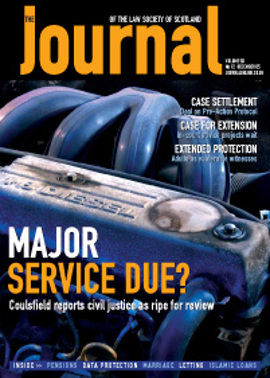Book reviews

“We, the affluent countries and their citizens, continue to impose a global economic order under which millions avoidably die each year from poverty-related causes.” (T Pogge, World Poverty and Human Rights (Polity Press, Oxford, 2002), quoted in Janet Dine’s preface, page ix.)
This book focuses on the role of corporations within the trading system and the complex relationship between nation states, international organisations and transnational corporations. It seeks reasons why international trade is not meeting the objectives to be found in international trade agreements and human rights instruments. It investigates the reasons why, despite the globalisation of trade, even the minimum of basic human rights is not being achieved.
In the first chapter questions are posed regarding the importance, influence and effect of transnational corporations, political institutions and the individual citizen in respect of globalisation, enrichment and human rights. Transnational corporations account for 70% of world trade and, therefore, are the major creators of wealth. Yet they stand accused in respect of the increased gap between rich and poor, environmental issues, labour concerns, undue influence over international organisations, and distortion of governments’ priorities. The chapter concludes with consideration and rejection of Rawls’s “just difference principle”, namely that inequalities can be just.
Chapter 2 adopts as its mantra Pogge’s assertion: “if such norms [of Enlightenment morality] are compelling enough, the strong make an effort to comply. But they also, consciously or unconsciously, try to get round the norms by arranging their social world so as to minimise their burdens of compliance”. It goes on to examine some of the most common devices for moral deflection, namely actions taken by institutions, companies and nation states; taking philosophies out of context; statistical (mis)representation; and use of language.
Chapter 3 looks briefly at the major institutions which create the framework for world trade: the International Monetary Fund, World Bank and World Trade Organisation. In particular it examines the undue influence transnational corporations and international financial institutions exert upon them. It looks also at the lessons to be learned from the history of sugar production and from the slave trade to show that trade laws were (and still are) made to suit the economic interests of the powerful.
Chapter 4 recognises that the primacy of nation states renders transnational corporations “invisible” to the constraints of international laws, including human rights laws. It examines whether there is any way by which transnational corporations can be brought under the jurisdiction of human rights laws and be subject to human rights responsibilities. It argues that it is necessary to evolve an agreed understanding of rights despite the often conflicting demands of civil, political, legal, social and economic rights. It is further argued that the International Monetary Fund, the World Trade Organisation, transnational corporations and international financial institutions require to accept their responsibilities regarding human rights or have them imposed upon them.
Chapter 5 considers the philosophy of “corporate social responsibility”. Several questions are then posed. Is a voluntary ethic sufficient? Does it contradict the purpose of corporations, namely to maximise the benefit to their shareholders? Can a corporation’s performance regarding human rights be measured? Finally, is it possible to regulate across different legal systems and, even if possible, is it desirable to do so?
The final chapter considers property rights in the contexts of human rights and international trade. It compares attitudes to property rights in the US and across Europe. It asks whether a focus on property rights diverts attention away from the duties and responsibilities demanded by human rights and promotes domination by the few over the many. Finally it examines what is being done and what more could be done to further international co-operation and social responsibility.
This book does not deal with legal practicalities and practice – nor is it so intended. It is an academic book, dealing with theories and principles. It is well researched and contains a plethora of quotations, references and substantive examples. It is thought-provoking and challenging, without providing substantial solutions.
Damien Bechelli, Biggart Baillie, Glasgow
In this issue
- Holes in Scotland's corporate killing proposals
- A month of contrasts
- Too small to be flexible?
- Engine overhaul
- Vital voices revisited
- Letting in the law
- Puzzles and paradoxes
- Legacy giving in a Scottish climate
- New deal for PI claims
- Data protection crackdown: do you comply?
- In real terms
- Access route
- Better law-making: just lip service?
- Appealing prospects
- The limits of diversification
- Cashing in on the event
- Farewell then common law marriage
- Scottish Solicitors Discipline Tribunal
- Website reviews
- Book reviews
- Unveiling the Islamic mortgage






